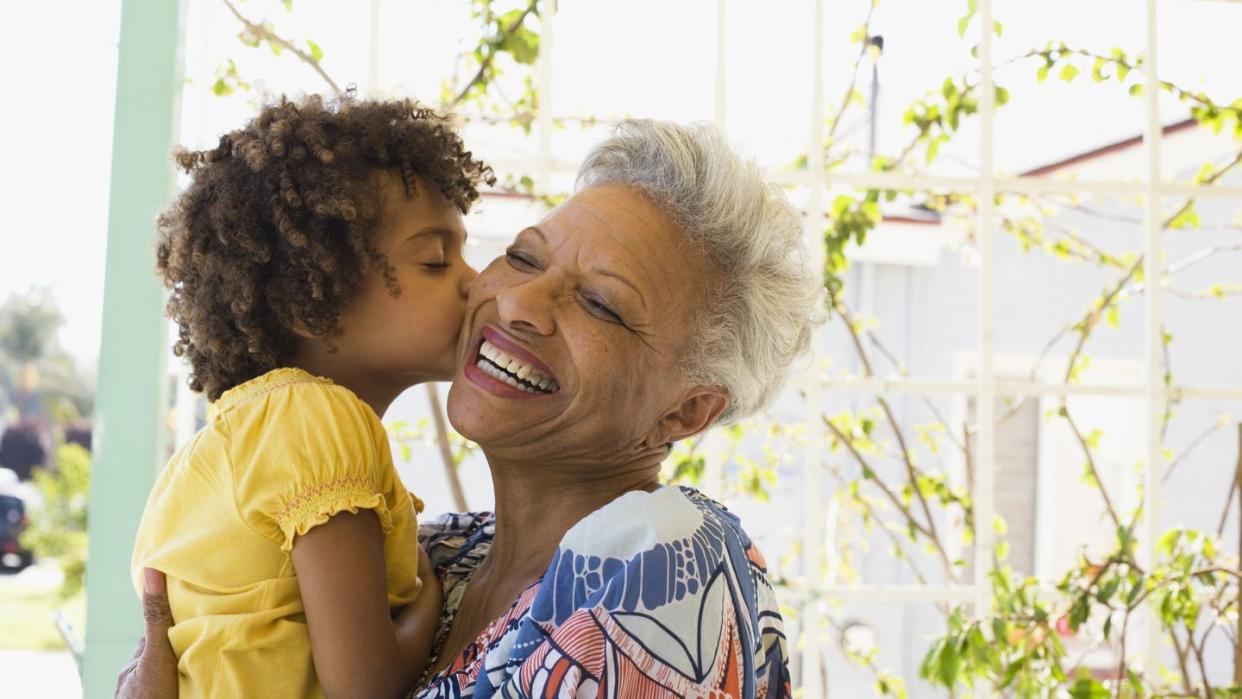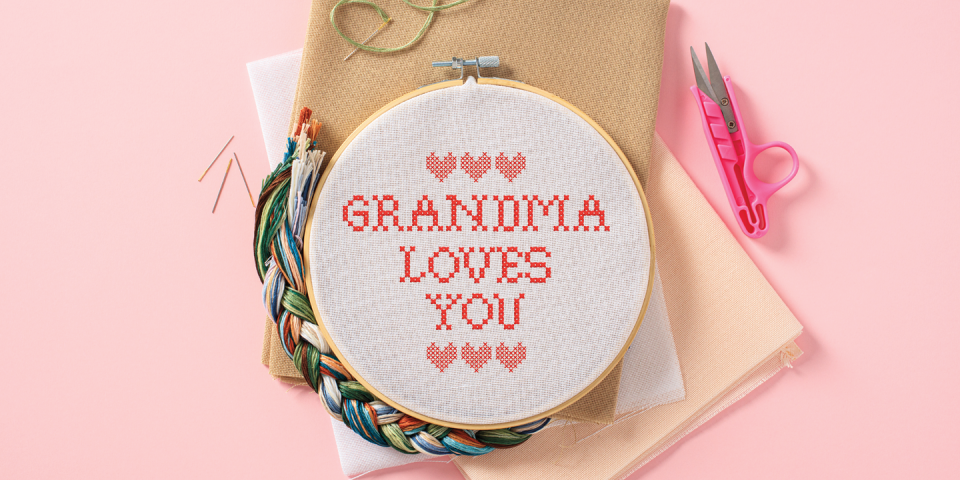New Research Reveals "Grandma Brain" Is Very Real

My son-in-law recently introduced me to his friend the following way: “This is Kate. She’s an interesting person and a good conversationalist … unless Anne is in the room. In that case, don’t even try.”
Anne is my toddler-aged granddaughter, and I am guilty as charged. Something happens to me when I’m with her. I’m enchanted. Bewitched. Besotted.
It turns out that this isn’t just love, though there’s plenty of that. I’m experiencing “Grandma Brain.” That’s not a technical term, but there is a scientific explanation for what’s going on. Neurological research has shown that something unique happens to our brains when we see our grandchildren — and it may explain our intense devotion and delight.
Dr. James Rilling, a professor in Emory’s Department of Anthropology and Department of Psychiatry and Behavioral Sciences at Emory University, scanned the brains of 50 grandmothers while showing them photos of their grandchildren. (The study didn’t include grandfathers.) What he discovered was brain activity that, at least in part, explains the intense grandmaternal bond.
“What really jumps out in the data is the activation in areas of the brain associated with emotional empathy,” Rilling says. “That suggests that grandmothers are geared towards feeling what their grandchildren are feeling when they interact with them. If their grandchild is smiling, they’re feeling the child’s joy. And if their grandchild is crying, they’re feeling the child’s pain and distress.”
Retired teacher Janet Meisel, who has three grandsons, wrote an essay on Medium with a title that’s a near-perfect illustration of the heightened emotional empathy that Rilling’s study revealed. Titled “Are Grandparents Supposed To Feel This Much Love?” her subtitle reads, “Sometimes it feels like my heart will burst with joy and sometimes with pain.”
Reflecting on the difference between being a mom and a grandma, Meisel writes, “I had given my children so much of myself, but this feeling was different. It was love on steroids.”
What makes the new research particularly interesting is that the grandmothers’ brains did not light up in the same areas when women looked at pictures of their own children. When photos of their offspring were shown to the same women, a different area was activated, one associated with cognitive empathy. With cognitive empathy, a person can understand what another is feeling and why. But with emotional empathy, a person experiences what someone else is feeling.
That’s no surprise to Nancy Claus, a Connecticut grandmother of two. “It’s like a melting,” she says, sighing. “Isabella’s just at this magical stage where you hold her, she looks into your eyes, locks on you, and just bursts into this smile. She’s just wiggling with happiness all over and then I feel so happy, just flooded with this warm, delightful feeling.”
Grandparents tend to joke, “If I’d known how great it would be to be a grandparent, I’d have done it before I had kids.” This sentiment has less to do with brain activity than it does with the relationship. (“I can enjoy the kid and then hand them back.”) Grandparents, of course, have less responsibility than parents. Combine that with heightened emotional empathy swirling around in their brains and a “don’t sweat the small stuff” sensibility of many older folks, and it makes for a joyful ride.

“I could have a terrible day or a wonderful day, but as soon as I walk into the room with my grandson or my granddaughter, anything that happened before just dissipates,” says Melanie Schaffran, a New York grandmother. “I’m in complete rapture. Not to say I’m not aware of the mess being created, but it doesn’t matter.”
For mothers and fathers, mess does matter. Parents are often up to their ears in work stress, financial stress, kid stress, eldercare stress and everything else pulling on them at the stage of life when kids are young.
“I don’t even remember that life,” says Marti Gallardo, a Texas grandmother of three, with two more on the way. “We were just so busy.” Gallardo, now retired from her career in advertising sales, chatted while covered in “green apple peel spit.” She was watching her 14-month-old granddaughter, Clare, who only likes the inside of apples. As a grandma — and a woman who was no longer has to rush to work looking professional nor worry about if the baby is eating the right foods — Gallardo was relaxed.
Rilling’s original research was conducted in 2021. His study included placing 50 grandmothers in MRI machines and observing their reactions to photos of grandchildren who ranged from ages three to 12. The women were also shown photos of their own biological children as adults, as well as pictures of unknown people of all ages.
The data is still being analyzed. Currently, Rilling is studying saliva samples to see whether grandmothers have more oxytocin — nicknamed “the love hormone” for the good feeling it produces — compared to women of the same age who are not grandmothers. His team is also exploring if being a grandmother affects the rate at which the brain ages, with the hypothesis that it slows the process. He also hopes to conduct longitudinal studies by taking brain images and studying hormones before and after women become grandmothers. Rilling also plans to study the brains of grandfathers.
The biology of grandparents is “unexplored territory,” Rilling says. “A lot of research on older people’s brains is in the context of pathology and degeneration. Here we’re looking at healthy older brains and what they may have been designed for.” He believes his is the first study to examine grandmothers’ brain activity.

That said, other non-neurological studies have made the connection between being an active grandparent and better health. AARP conducted a comprehensive survey of grandparents and in its summary refers to grandkids as “the elixir of life.” Benefits include a more physically active lifestyle, more sociability and improved mental well-being.
The Berlin Aging Study, which tracked health outcomes of more than 500 people ages 70 and older, found that grandparents who helped care for their grandchildren had lower mortality rates over a 20-year period than those who did not. Plenty of research has also documented the benefits to grandchildren of having grandparents in their lives.
Why have grandmother’s brains evolved as they have? As an anthropologist as well as a psychologist, Rilling speculates that close grandmaternal bonds make it easier for parents to reproduce and continue the species. Or to put it in everyday terms, if parents have some help with the first baby, they’re more likely to go for number two. Or three.
That may explain another facet of intense grandmother love. The recognition of past, present and future in a grandchild’s face. “I see little bits of my mother in Olivia already,” Claus says of her 2-year-old granddaughter. “I don’t want to burst into singing ‘Circle of Life’ here, but it’s seeing your genes passing on and moving to the future. Seeing the next generation, the continuity, just brings a contentment.”

You Might Also Like


